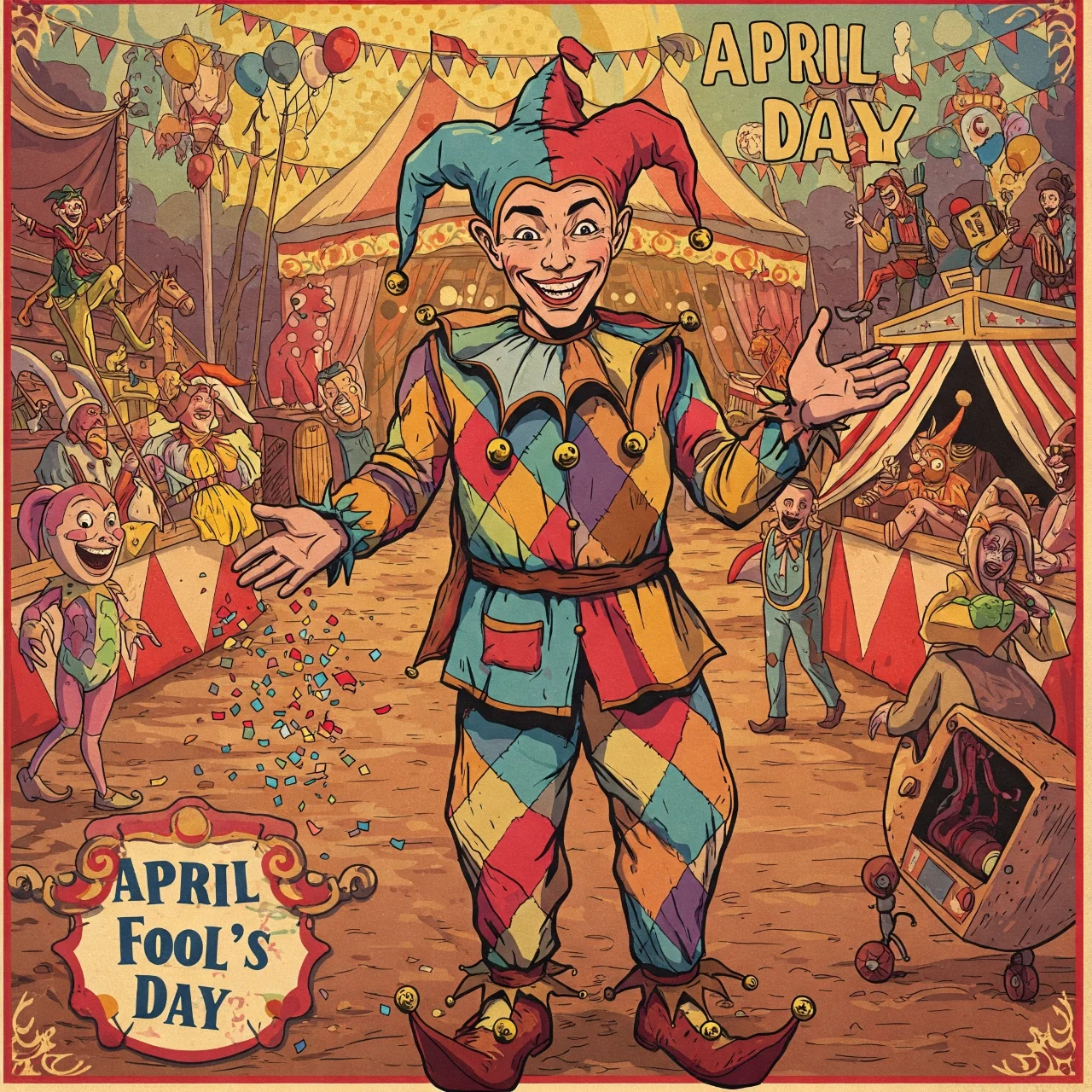Fool's Gold: Unearthing the Hilarious History of April Fools' Day Pranks!

April Fools' Day: A Celebration of Silliness & Sneaky Shenanigans!

Get ready to raise a glass (of fake soda, naturally!) to April Fools' Day, the annual holiday dedicated to laughter, lighthearted trickery, and occasionally, delightfully elaborate hoaxes. But where did this day of playful mayhem originate?
Join us as we journey through time, uncovering the fascinating history of April Fools' Day and reliving 10 of its most legendary pranks. Prepare to be amazed, amused, and maybe even inspired for your next (perfectly harmless) prank!
1. From Ancient Rome to Modern Mischief: The Whispers of April Fools' Origins
The true origin of April Fools' Day remains shrouded in a bit of mystery, much like a well-executed prank! Some historians link it to ancient festivals like Hilaria in Rome or the Hindu festival of Holi, celebrations known for their jovial chaos and role reversals.
Others point to the 16th century shift to the Gregorian calendar, where those slow to adopt the new year on January 1st were mockingly called 'April fools.' Whatever its birthplace, the spirit of playful deception has clearly been with us for centuries!
2. The Great Spaghetti Tree Harvest (1957): BBC Serves Up a Pasta Prank!
In 1957, the BBC's Panorama program aired a segment claiming that thanks to a mild winter and the eradication of the 'spaghetti weevil,' Swiss farmers were experiencing a bumper spaghetti harvest – from trees!
Accompanied by convincing footage of peasants pulling pasta from branches, the hoax was so believable that viewers flooded the BBC with inquiries about growing their own spaghetti trees. This remains one of the most iconic and humorous early television pranks.
3. Burger King's Left-Handed Whopper (1998): Have It Your Way… But Backwards!
Burger King took targeted advertising to a whole new level in 1998 by announcing a 'Left-Handed Whopper' designed specifically for southpaws.
According to their ad, it had all the same ingredients, just rotated 180 degrees to redistribute the weight for left-handed eaters. Thousands reportedly requested the special burger, proving the power of suggestion and a good dose of April Fools' absurdity in marketing.
4. Taco Bell Buys the Liberty Bell (1996): A National Landmark… or April Fool’s Joke?
In 1996, Taco Bell declared in full-page newspaper ads that they had purchased the Liberty Bell and renamed it the 'Taco Liberty Bell.' Outraged citizens called the National Park Service in droves, only to discover it was an April Fools' hoax orchestrated by the fast-food chain.
White House Press Secretary Mike McCurry even joined in the fun, joking that the government was selling national monuments to reduce the national debt!
5. Sidd Finch, the Amazing Mets Pitcher (1985): Sports Illustrated's Curveball of Deception
Sports Illustrated pulled off a legendary sports prank in 1985 with an article about Sidd Finch, a rookie pitcher for the New York Mets who could throw a baseball at an astonishing 168 mph with pinpoint accuracy.
The elaborate story, complete with photos, described Finch’s mysterious background and unconventional training in Tibetan mysticism. Readers were utterly captivated, until April 15th, when SI revealed it was all a cleverly crafted April Fools' Day fiction!
6. San Serriffe: The Guardian's Typographical Island Nation (1977)
In 1977, The Guardian newspaper published a seven-page supplement dedicated to San Serriffe, a fictional island nation nestled in the Indian Ocean. Detailed articles described its geography, culture, and two main islands: Upper Caisse and Lower Caisse (a clever typography pun!).
The elaborate hoax, intended as a joke on pretentious travel supplements and font aficionados, fooled many readers and became a beloved example of journalistic wit.
7. Flying Penguins (2008): BBC Strikes Again with Nature Documentary Deception
The BBC proved their prank prowess once more in 2008 with a spoof nature documentary segment featuring 'flying penguins.' Narrated by Monty Python's Michael Palin, the clip showed penguins soaring majestically to South America for warmer climates.
The visual effects were surprisingly convincing for the time, and the deadpan delivery made it all the more hilarious and believable for unsuspecting viewers tuning in on April Fools' Day.
8. Nixon to Run Again? (1992): NPR's Political Prank Sounds Eerily Plausible
In 1992, NPR's 'Talk of the Nation' announced that Richard Nixon was seeking a fifth term for president with the slogan 'I didn't do anything wrong, and I won't do it again.' Given Nixon's controversial history, the prank was particularly sharp and satirical.
Callers flooded the station, some in outrage, others in support, demonstrating how effectively April Fools' Day can be used for political commentary (with a side of humor, of course).
9. The Enduring Mystery of 'Poisson d'Avril' (April Fish): A Sweetly Simple Tradition
In France and other countries, April Fools' Day is known as 'Poisson d'Avril' (April Fish). The tradition involves sticking paper fish on people's backs as a prank. The origins of the 'fish' element are debated, possibly symbolizing gullibility or the end of Lent's fish restrictions.
Regardless of its precise meaning, 'Poisson d'Avril' remains a charming and gentle reminder of the day’s playful spirit, highlighting that not all pranks need to be elaborate to be effective.
10. Google Gnome (2017): When Tech Giants Join the Fun
Even tech giants like Google get in on the April Fools' action. In 2017, they introduced 'Google Gnome,' a voice-activated smart device shaped like a garden gnome.
Parodying smart home assistants, the Google Gnome offered 'helpful' outdoor advice, often with a humorous and whimsical twist. The prank showcased Google’s playful side and highlighted the absurdity that can be found even in cutting-edge technology.
Comments
Loading comments...